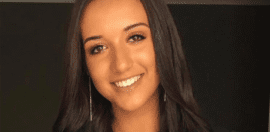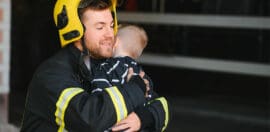Behind my crooked legs: The medical reality of life with a disability

10 December 2020 at 8:43 am
Holly Matthews explains what life is like for her as a teenager with Cerebral Palsy and shares her thoughts on what the disability and broader community sector can do to help young people like her.
If you saw me walking down the street, you’d probably see my legs constantly knocking together and think it was one of the weirdest ways for a person to walk. You might even see an agonising look on my face but you wouldn’t know why. I live with Cerebral Palsy Spastic Diplegia (Cerebral Palsy or CP for short), which causes spasticity in my body that makes me walk differently. My disability has led me down a path of hundreds of appointments, treatment, physio, tears and more than the occasional laugh. I’m currently undertaking my VCE and live in rural Victoria. I want you to remember, I’m a normal teenager but my experiences are different compared to other young people.
After being diagnosed with CP at two years old, my childhood was filled with doctors’ and allied health appointments, early intervention, daily physio, Botox treatment under a general anaesthetic to help me walk properly, wearing AFOs and trying to be a normal kid. Living in a rural area makes the medical part of my disability more difficult as the specialists that I need to see are in Melbourne or Adelaide, roughly between 400km and 600km from my hometown. This has also meant lots of family holidays to the city and shopping trips – a small perk to having to travel for medical treatment. My far from normal childhood has given me a very unique way of looking at life. But I am so thankful for those early years of craziness, without it I quite possibly wouldn’t be the way I am today.
The services that I have used have been fantastic – from my physio, to all the doctors I have seen over the years and the hospital staff, they have been great to both me and my family. I’ve also had the privilege to be involved with the Starlight Children’s Foundation and its fantastic programs. We have been supported since day one and the services that I have used have enabled me to do whatever I want to do in life. I have never been limited thanks to the help of my team. This is what I think services should provide, the opportunities for people to live the lives they want to live.
But life is hard. I’m far from a normal young person. I live with chronic pain with no end in sight, I get exhausted very easily and have more medical appointments than my peers. Life with CP is like being in a little room alone while your friends are outside experiencing a life totally different to yours. We are running a different race to our peers. People don’t really understand what our lives are like, even when they think they do.
What do I mean when I say chronic pain? The misalignment of my body causes me to have continuous pain in my knee and makes my right knee crunch every time I move. I have tried strengthening exercises, bike riding, innersoles in my shoes, a host of different brands of over the counter medication and I’ve now been prescribed pain medication to take when I’m at my worst, but even this doesn’t extinguish my pain totally. If you think this sounds exhausting, it is – mentally and physically. We have tried everything, and it causes not only me to stress and worry but my family and everyone involved. Not knowing what is around the corner, and having to deal with not getting any better, or in fact getting worse, is extremely stressful. You might not know it to look at me, but there are nights I just lie in bed and cry with frustration.
COVID-19 has meant I’ve been unable to go to school. This hasn’t helped my situation, as my body hasn’t got the same level of activity it normally would. But the mental toll has been much the same, and the resilience I developed growing up has helped me get through the challenges that come with being stuck at home.
What can the disability and broader community sector do to help young people like me? Well you can’t cure me or just fix my problems, but you can do so much to support young people like me. If you come across people like me, you need to understand what we are going through is tough and isn’t easy. Listen to us, hear our stories of our different childhoods and what we are currently living through. You don’t have to provide advice. Often people like me just want someone to listen to our stories. When you’re working with people like me keep a positive outlook but remember to be realistic about the situation at hand. Validate our experiences, acknowledge that what we are going through is hard and is different. And remember, every young person with a disability or chronic illness has a different experience and we aren’t all the same.
This article is part of a monthly series, Youth Matters, a collaboration between Youth Affairs Council Victoria and Pro Bono Australia to inject the voices of young people into the social change sector.
See also:
Why youth services must be accessible
Creating better, safer mental health support starts with listening to young people
How we can improve mental health services for CALD communities and young people
Budget special: Short-term gain, long-term pain for young people
Using business for good not good enough to tackle social challenges







